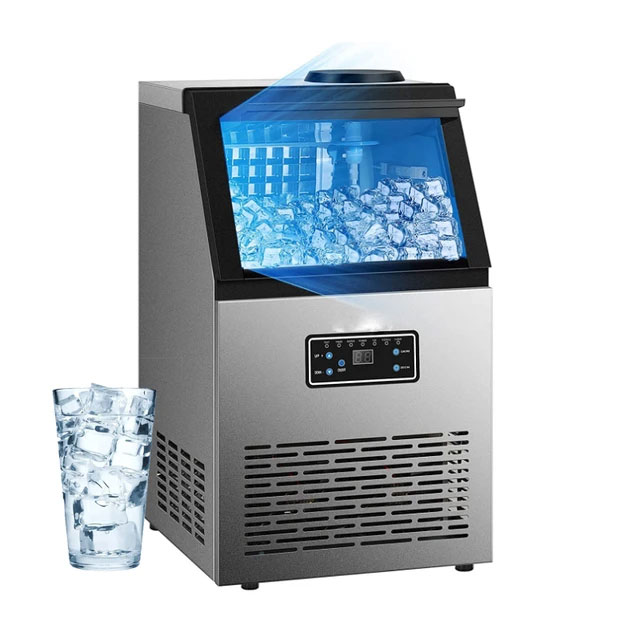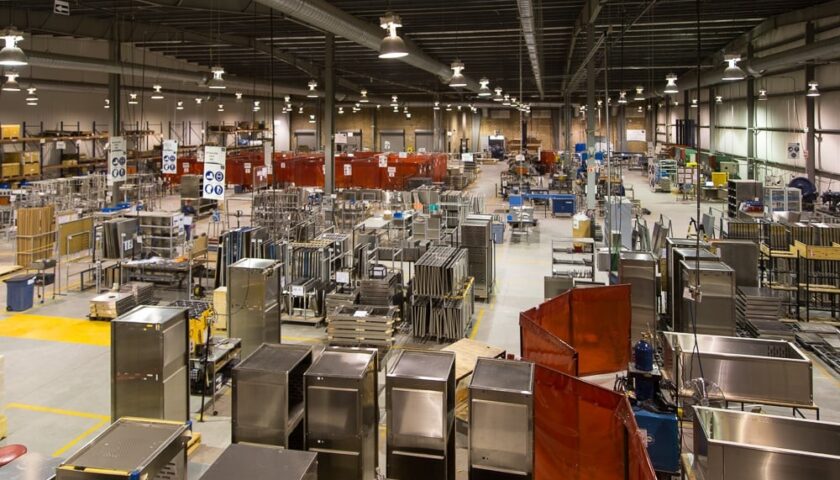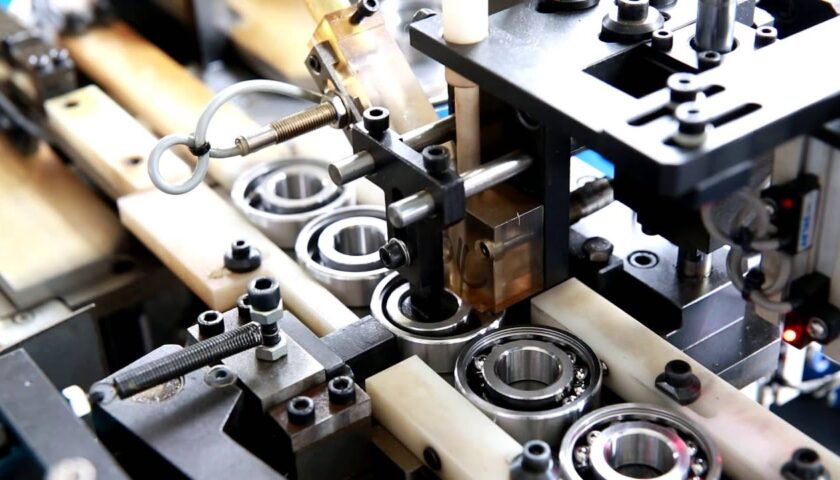Introduction
Ice is a fundamental component of countless beverages and foodservice applications, from keeping drinks refreshing in a scorching summer to preserving perishables in a restaurant kitchen. For businesses, such as restaurants, bars, hotels, and convenience stores, the demand for ice is constant, and a reliable source is essential. This is where commercial ice makers come into play. In this article, we will explore the world of commercial ice makers, their types, benefits, and factors to consider when choosing the right one for your business.
Types of Commercial Ice Makers
- Modular Ice Machines: These are the workhorses of the industry, capable of producing large quantities of ice in various shapes (cubes, nuggets, or flakes). They are designed to be connected to a separate storage bin and can produce ice continuously.
- Undercounter Ice Machines: Perfect for smaller businesses or bars, these compact machines are designed to fit under countertops. They produce ice and have built-in storage, making them convenient and space-efficient.
- Countertop Ice Dispensers: These are even more compact and are often used for self-service in cafeterias or buffet-style settings. They dispense ice automatically, minimizing the need for staff intervention.
- Flake and Nugget Ice Machines: Popular in healthcare facilities and seafood displays, these machines produce soft, chewable ice that is ideal for medical applications and product displays.
Benefits of Commercial Ice Makers
- Customization: Different businesses have different ice needs. Commercial ice makers offer options for ice shape and size to suit specific applications, from keeping drinks cold to preserving seafood.
- Efficiency: Many modern commercial ice makers are designed with energy efficiency in mind, reducing utility costs and environmental impact.
- Hygiene: These machines often feature antimicrobial components and self-cleaning mechanisms to ensure the ice produced is safe for consumption.
- Productivity: With high production capacities, commercial ice makers can meet the demands of busy establishments, reducing downtime and improving productivity.
Factors to Consider When Choosing a Commercial Ice Maker
- Production Capacity: Determine how much ice your business requires daily. Choose a machine that can meet or exceed your demand.
- Ice Type: Consider the type of ice that best suits your needs. Cubes are versatile, while flake and nugget ice are ideal for specialized applications.
- Storage Capacity: The storage bin size should match your production needs to avoid running out of ice during peak hours.
- Space Constraints: Measure the available space where you plan to install the ice maker to ensure it fits comfortably.
- Energy Efficiency: Look for ENERGY STAR-certified models to reduce energy consumption and operating costs.
- Water Quality: High-quality water is essential for ice quality. Consider water filtration systems to ensure clean ice production.
- Maintenance: Opt for machines with easy-to-clean components and accessible parts for routine maintenance.
Conclusion
Commercial ice makers m are indispensable in the foodservice industry, providing a steady supply of ice to keep drinks cold and products fresh. By understanding the different types, benefits, and factors to consider when choosing a commercial ice maker, businesses can make informed decisions that not only meet their ice production needs but also improve efficiency and customer satisfaction. So, whether you’re running a bustling restaurant or a cozy café, investing in the right commercial ice maker is a cool choice that will keep your business running smoothly.
Of course, let’s delve deeper into the world of commercial ice makers and explore some additional aspects and considerations:
Ice Quality: The quality of ice produced by a commercial ice maker is crucial. Clear, pure ice cubes are often preferred for beverages, while flake or nugget ice is ideal for certain food presentations or medical applications. Make sure the ice maker you choose produces ice that meets your specific requirements.
Installation and Location: Think about where you will install your commercial ice maker. Proper ventilation and access to water and electricity are essential. Also, consider factors like ambient temperature, as extreme conditions can affect the machine’s performance.
Water Filtration: Water quality plays a significant role in ice quality and the longevity of your ice maker. Installing a water filtration system can help remove impurities, minerals, and contaminants, ensuring clean and clear ice production.
Ice Dispensing: Depending on your business type, you might require an ice dispenser that can deliver ice directly to customers or staff efficiently. Consider whether you need a dispenser feature when selecting your ice maker.
Noise Levels: Commercial ice makers can be noisy during the ice-making process. If your establishment has a quiet ambiance, look for models with quieter operation or noise-reducing features.
Warranty and Support: Ensure that the manufacturer offers a comprehensive warranty and reliable customer support. This can be crucial in case of unexpected breakdowns or maintenance issues.
Energy Efficiency: As mentioned earlier, energy-efficient models can significantly reduce operational costs. Look for energy-saving features like LED lighting, improved insulation, and high-efficiency compressors.
Regulations and Compliance: Familiarize yourself with local health and safety regulations, as well as industry standards, to ensure that your chosen ice maker complies with all necessary requirements.
Cost of Ownership: Consider the total cost of ownership over the lifespan of the machine, including initial purchase price, maintenance, energy costs, and potential repairs. A slightly more expensive, high-quality machine may be a better investment in the long run.
Brand Reputation: Research and choose reputable brands with a history of producing reliable commercial ice makers. Reading customer reviews and seeking recommendations from other businesses in your industry can be helpful in this regard.
In conclusion, a commercial ice maker is a vital piece of equipment for businesses that rely on ice production. By carefully considering factors such as production capacity, ice type, storage capacity, space constraints, energy efficiency, water quality, and maintenance, you can select the perfect ice maker to meet your specific needs. This investment will not only improve the efficiency of your operations but also enhance customer satisfaction by ensuring a consistent and high-quality supply of ice for all your business needs.
Certainly, let’s explore a few more important considerations and benefits of commercial ice makers:
Ice Production Rate: The production rate of a commercial ice maker is usually measured in pounds or kilograms of ice produced per day. Ensure that the chosen machine can meet your daily demand even during peak hours. Some models can produce hundreds of pounds of ice daily, making them suitable for large-scale operations.
Ice Storage and Dispensing Options: In addition to production capacity, think about how ice will be stored and dispensed. Some ice makers come with built-in storage bins, while others require separate bins or dispensers. Choose a configuration that best suits your space and workflow.
Ease of Cleaning: Proper maintenance is essential to keep your ice maker running efficiently and producing safe, clean ice. Look for models with removable and dishwasher-safe components, as they make cleaning and sanitation more convenient.
User-Friendly Controls: Intuitive controls and user-friendly interfaces can simplify the operation of the ice maker, reducing the potential for errors and ensuring consistent ice production.
Ice Transportation: Consider how ice will be transported from the ice maker to where it’s needed. In larger establishments, ice bins with ice scoops or automated ice dispensers may be necessary to distribute ice throughout the facility efficiently.
Ice Handling: Train staff on proper ice handling procedures to maintain hygiene and prevent contamination. This includes using clean scoops or tongs and avoiding direct hand contact with ice.
Emergency Backup: In case of machine failure or maintenance, it’s wise to have a backup plan for obtaining ice. Some businesses keep a supply of bagged ice on hand or have access to a secondary ice maker.
Maintenance Schedule: Develop a regular maintenance schedule to keep the ice maker in optimal condition. This should include tasks such as cleaning, sanitizing, and inspecting the machine for any signs of wear or malfunction.
Cost Analysis: Conduct a thorough cost-benefit analysis to determine the return on investment (ROI) for your chosen ice maker. Consider factors like ice production, energy efficiency, maintenance costs, and potential revenue generation through increased sales or improved customer satisfaction.
Environmental Impact: If sustainability is a priority for your business, look for ice makers that use eco-friendly refrigerants and materials. Many modern models are designed with energy-efficient components to reduce their carbon footprint.
Ice Maker Accessories: Explore additional accessories and options that can enhance the functionality of your commercial ice maker. This may include ice bins, ice scoops, water filters, and water softeners, among others.
In conclusion, a commercial ice maker is an indispensable asset for various busi





